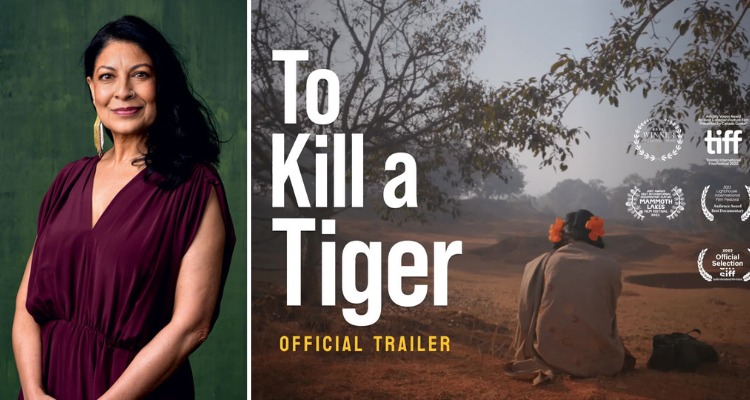
The Delhi High Court on Thursday sought the Centre’s stance on a petition seeking action against filmmaker Nisha Pahuja and Netflix for allegedly revealing the identity of a minor gang rape survivor in the documentary film To Kill A Tiger, in violation of the law.
Set in a Jharkhand village, To Kill A Tiger follows the journey of a man seeking justice for his 13-year-old daughter who was sexually assaulted by three men. The film, which was nominated in the ‘Best Documentary Feature’ category at the 96th Academy Awards, has been publicly available in India since March.
A bench comprising Acting Chief Justice Manmohan and Justice Tushar Rao Gedela issued a notice to the Centre, Pahuja, an Emmy-nominated filmmaker based in Toronto, Canada, and the streaming platform Netflix, on a petition filed by the Tulir Charitable Trust. The court has asked them to file their replies but has refused to stay the film’s streaming at this stage.
The petitioner alleged that the film revealed the identity of the 13-year-old rape survivor, as her face was not obscured and she was shown in her school uniform. The petitioner’s counsel argued that despite the film being shot over 3.5 years, Pahuja made no attempt to mask the minor’s identity. The counsel also claimed that the survivor was asked to repeatedly recount her ordeal, and that Netflix was aware of this issue.
The petition alleged that the film violated the Protection of Children from Sexual Offences (POCSO) Act and other legal provisions regarding the protection of minor rape survivors’ identities. The survivor, it was claimed, could not have refused consent to disclose her identity after turning 18 due to a “kind of Stockholm syndrome.”
The Centre’s lawyer requested time to seek instructions on the petition. A representative for the private respondents argued that the film was made with the permission of the girl’s parents and that the survivor, having turned 18, consented to her story being shared. The lawyer contended that if the petitioner’s arguments were accepted, it would prevent any film or book from addressing such incidents, which was not the intent of the laws protecting minor rape victims.
The documentary was first released in Canada in 2022 and in India in March of this year.
The matter is scheduled for the next hearing on October 8, 2024.




